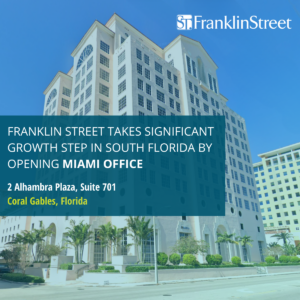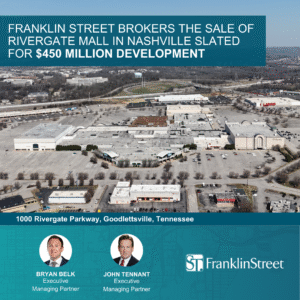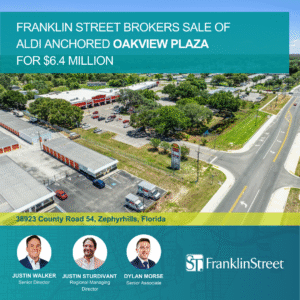ATLANTA—In more than a dozen power centers that have been recently completed or are under development, Hobby Lobby is the leading anchor—and according to a Franklin Street Retail Investment Advisors Report a similar tenant line up follows. That line up includes Ross Dress for Less, TJMaxx, Marshall’s, Ulta, Petco and Petsmart. According to Franklin, these tenants are leading the way in expansion into secondary markets and power center developers have followed suit in chasing a similar tenant lineup to make deals work. Investors have been accepting of the lineup as well because of the strong credit of the tenants. GlobeSt.com caught up with Bryan Belk, senior director of Franklin Street Atlanta, to get this thoughts on these trends in part one of this exclusive interview. Be sure to watch for part two, in which Belk will discuss power center sales and pricing trends in 2016.
GlobeSt.com: What trends are you seeing in power center development throughout the Southeast?
Belk: We are typically seeing new builds in the 150,000- to 180,000-square-foot size, which is smaller than most of the traditional sized power centers. With tenants changing their prototype over the years this is what the markets are giving developers when they go to lease centers. Hobby Lobby has been a main anchor driver for the developments because of their expansive growth in secondary markets.
GlobeSt.com: There’s been a lot of talk about value concepts and pet stores during the past few years, so why is Hobby Lobby such a desirable tenant for secondary and tertiary development?
Belk: One reason is they are a traffic generator. Second is that they take a large chunk of space so developers are able to take down the 20+ acres they would typically need filled in order to build a power center, and give them coverage to begin to fill in the secondary tenants that are in the range of 10,000 to 20,000 square feet.
GlobeSt.com: With the number of potential anchor tenants shrinking, are the days of big-box anchor tenants passed, or do you believe we’ll see new big-box concepts emerge?
Belk: I think there will always be a certain need for centers like this because as much as people like to buy stuff online, they also like to touch and feel the goods too. The tenant depth in most categories has shrunk through consolidation but many of the tenants in these types of center have seen continued same store sales growth.



